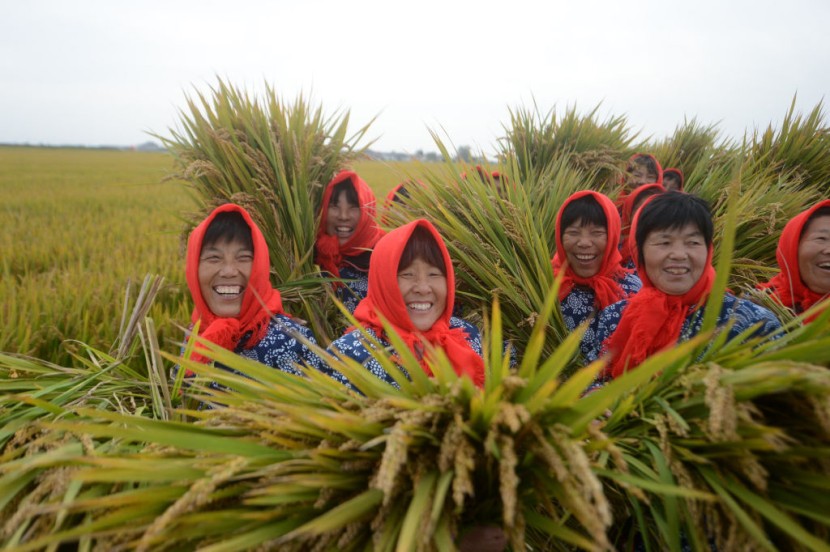
Chinese scientists recently developed a rice variety that can be grown in salty soil near the sea as a solution to the threats of rising seawater levels and high demands and disruptions on the grain production that feeds half of the world.
The salt-tolerant rice type developed in test fields in Tianjin is expected to help ensure food security. It recorded a yield of 4.6 metric tons per acre last year, which is more than China's national average for the production of standard rice varieties.
As global warming and geopolitical tensions make imports less dependable, China searches for measures to guarantee domestic food and energy supplies for its population of 1.4 billion with rising rice consumption as the country's economy shoots up, per Bloomberg.
Wan Jili, a manager at Qingdao Saline-Alkali Tolerant Rice Research and Development Center, drew a parallel between the significance of semiconductors in developing new technologies that include the development of the breakthrough rice strain.
He said, "Seeds are the 'chips' of agriculture," and seawater rice could help enhance rice production amid the trade tension between the US and China and the threat of climate change to food supply worldwide.
Seawater Rice: A Legacy of China's Father of Hybrid Rice
Since the 1950s, China has been conducting research on developing salt-tolerant rice. The term "seawater rice" only came up in recent years when the late ex-top agricultural scientist and "father of hybrid rice" Yuan Longping started developing the concept through cross-breeding and other technologies in 2012, as per Chinadaily.
He identified six areas across the country with different soil conditions to test the salt-tolerant rice type in 2016. The following year, the Chinese government established a rice research facility in Qingdao that aims to harvest 30 million tons of rice within 6.7 million hectares of infertile land.
Yuan claimed the seawater rice "could feed 80 million more people." He also encouraged agricultural scientists to "shoulder the responsibility" of ensuring enough food supply for the nation.
Salt-Tolerant Rice Could Be a Solution to Food Supply Shortage Risk
The challenge has become more urgent as a result of climate change. Over the last 40 years, China's coastline waters have climbed faster than the global average. This troubling development has given the country's dependency on grain production along its long and low eastern coast.
Cultivating salt-tolerant rice on a big scale would help the country better use the region's increasingly salty terrain.
If the Earth's temperature increases by two degrees Celsius, sea levels across the globe would rise as much as 59 centimeters by the end of the century.
Oceans around the US are expected to increase faster in the next 30 years than they did in the past century, according to the Intergovernmental Panel of Climate Change cited in the report published by the National Oceanic and Atmospheric Administration.
Per CNBC report, rice production is threatened by severe weather patterns and rainfall, making it the world's most important supply of staple grains. However, rice production is also in jeopardy because most of the production takes place in deltas that are at risk of being drowned by seawater.
Related Article : Poland Blasts Brussels for High Energy Prices Due to the Energy Crisis Which Causes Dissension Amongst EU Members








